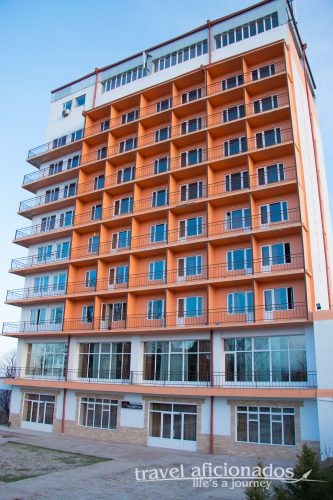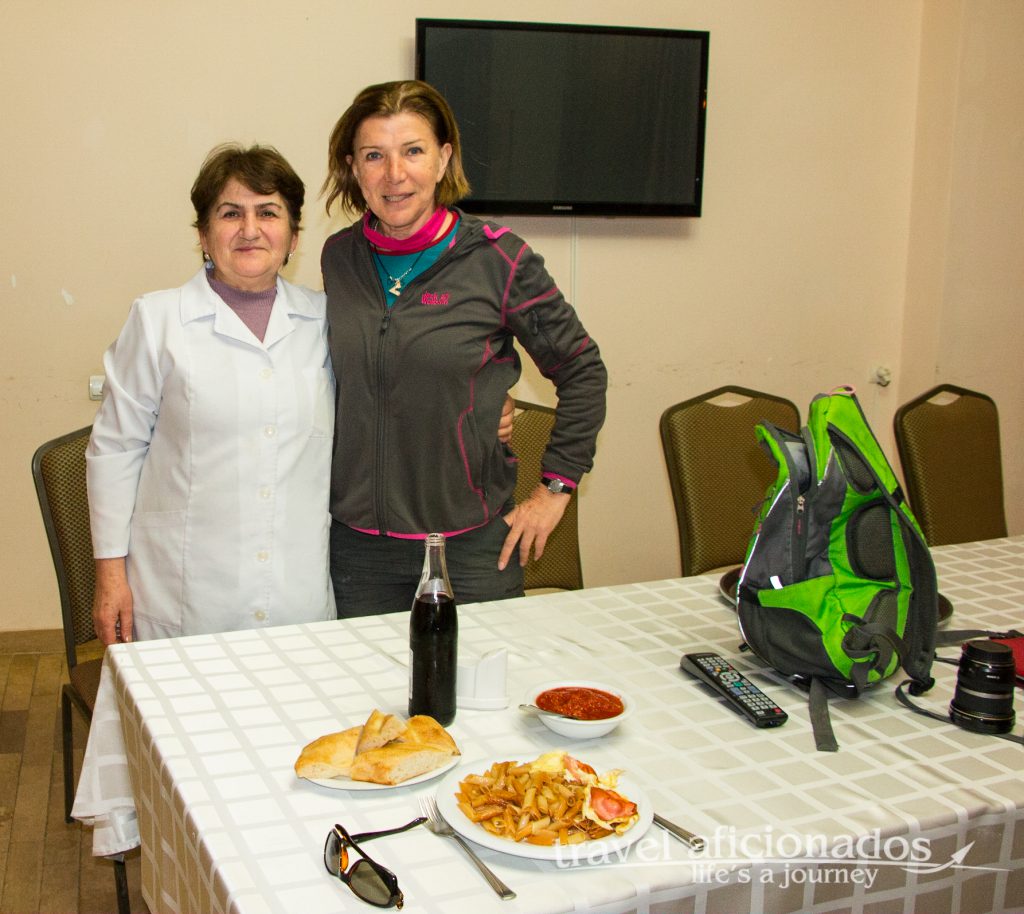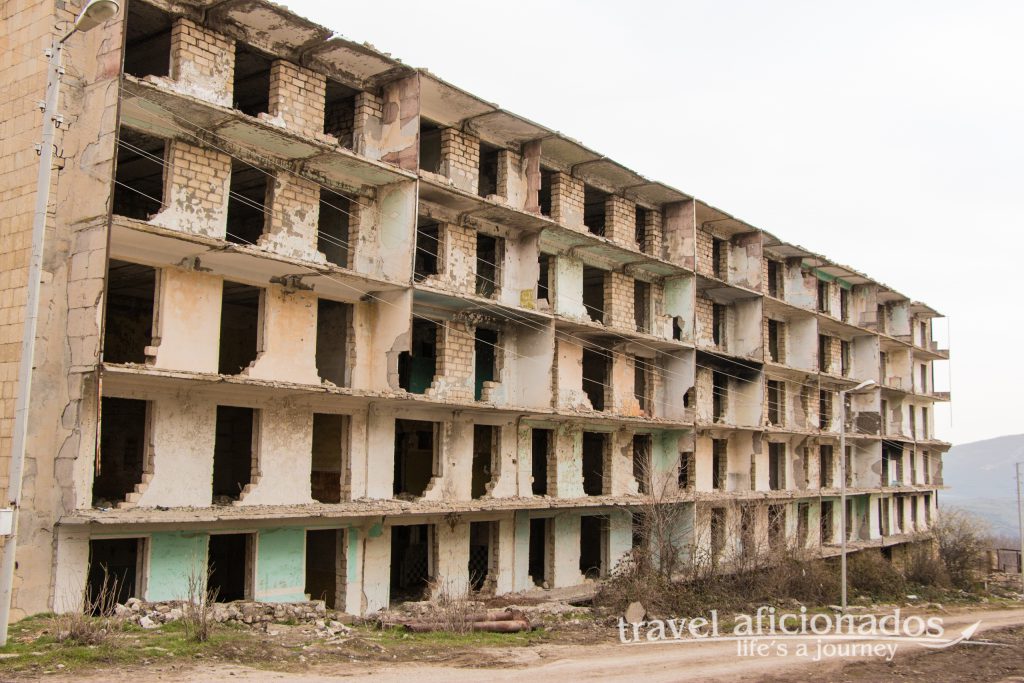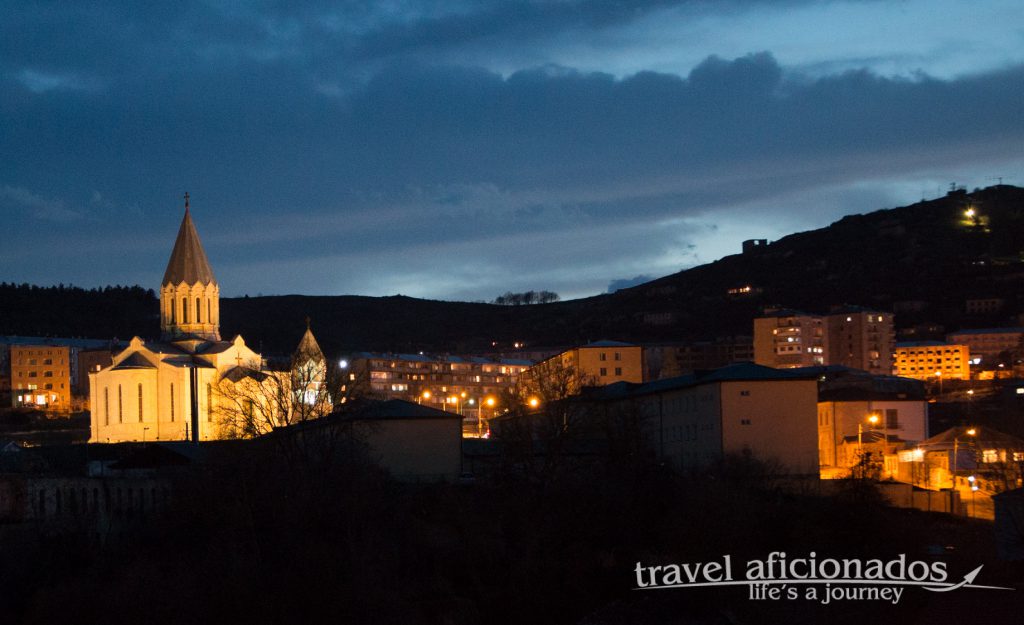It was the very name that first drew my attention, finally a name I could easily remember. Once there, it became ingrained in my memories forever. Large parts of Sushi are still in ruins, 23 years after the war with Azerbijan that cost the lives of thousands of Azari and Aremnians soldiers and civilians. The reminders of this war are much more evident in Shushi than Stepanakert, only 15 minutes drive away.
Khackik, the owner of the hostel in Goris/Armenia who drove me to here, stayed with his family in Stepanakert while I stayed in a very nice hotel in Shushi, the only guest. In order to fill the hotel it is used as a home for students who curiously checked me out.

Hotel in Shushi
Getting something to eat was unforgettable: a lady from the village arrived who spoke excellent English, she took me to the kitchen where two cooks idled away with nothing to do. Spaghetti and wine was negotiated and everybody was happy. With my dinner the drunken husband of one of the cooks arrived and rattled off in Russian assumed this was my language. When he had finished his vodka he helped himself to my wine – the whole situation was simply hilariously.

my personal chef at the hotel in Shushi
But Sushi is not only about war, many of the buildings have been torn down and rebuilt and a beautiful church overlooks the city. In the evening the girl who spoke English so well took me to the top floor of the hotel where I could see Shushi at night with the church bathed in romantic golden lights.
Walking through the ruins that once were homes, the current refugee situation in my home country Austria became very realistic and it felt very strange to take photos of evidence that caused so much misery and grief. How alive these feelings really are I realized in the Museum of Missing and Fallen Soldiers that is run by family members of these young men killed in the three year long conflict.



No comments yet.